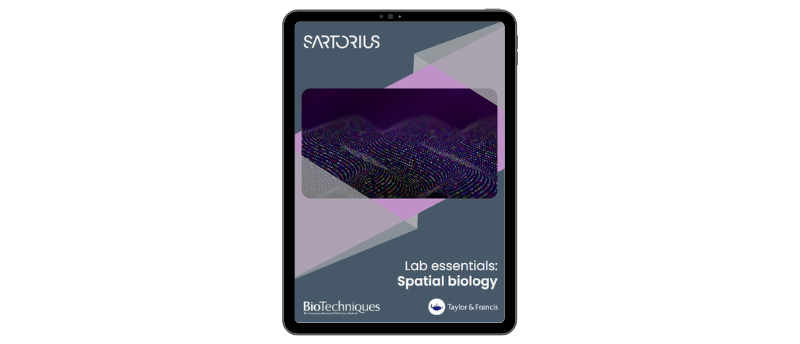eBook | Lab essentials: Spatial biology

This eBook cuts through the complexity of spatial techniques, featuring a series of inteveiws with pioneers in the field, and peer-reviewed research from the Taylor & Francis journal portfolio. This downloadable eBook offers a carefully curated exploration of spatial transcriptomics, proteomics and associated laboratory methodologies.
Contents
- Interview: Spatial biology: a collaboration between the biological sciences and information technologies
- Discover the history of spatial biology in this interview with Mike Doyle, who invented one of the early platforms that gave rise to the field.
- Interview: Machine learning approaches for spatial omic data analysis
- Get best practice tips for collecting and analyzing spatial omic data from the Assistant Center Director for Research Informatics at the Moffitt Cancer Center, (FL, USA)
- Application article: Effects of static electricity on analytical weighing
- Sartorius provides you with all you need to know about the impact of static on your scales and how to minimize it.
- White paper: Magnetism – an influencing factor on weighing
- Reduce errors in your studies by getting preparatory and analytical weighing right. Discover how to account for the impact of magnetism in this white paper from Sartorius.
- Special report: Spatial proteomics towards cellular resolution
- This report provides an overview of the untargeted, bottom-up mass spectrometry (MS)-based spatial proteomics workflow. It highlights recent progress in tissue dissection, sample processing, bioinformatics, and liquid chromatography (LC)-MS technologies that are advancing spatial proteomics toward cellular resolution.
- Review article: Spatial transcriptomic applications in orthopedics
- This review highlights the transformative impact of spatial transcriptomics on orthopedic research, focusing on its application in deciphering intricate gene expression patterns within musculoskeletal tissues.
In association with

You might also be interested in...